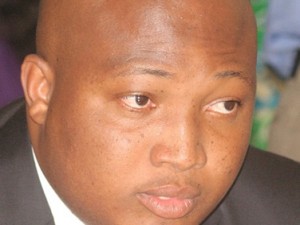Government to speedup passage of Tertiary Education Research Fund

Mr Samuel Okudzeto Ablakwa, Deputy Minister In -Charge of Tertiary Education, says the establishment of the Tertiary Education Research Fund is to provide a more sustainable funding of research to drive national growth and development.
He said the objective of the Bill is to provide financial resources to support, promote and publicise research in public universities and polytechnics.
Mr Okudzeto Ablakwa was speaking in a speech read on his behalf at a two-day consultative forum on education in Accra.
The forum was organised by the Association of African Universities (AAU) and the Association for the Development of Education in Africa (ADEA’s) Working Group on Higher Education (WGHE).
The Forum, on the theme: “Improving Higher Education in Africa”, aimed at establishing a framework for collaboration and help forge an integrated approach towards mobilising resources for Higher Education in Africa.
The Deputy Minister noted that growing a strong scientific knowledge base holds the key to transforming Africa to become world class in a number of research fields, however, the global position of African research is now being challenged by a rapidly changing research landscape.
“Research in the continent is faced with implications of globalisation of markets and industries and new technologies, as well as a need to address societal issues such as an ageing population,” he said.
Mr Okudzeto Ablakwa said in its broad innovation strategy for West Africa, the importance of improving knowledge transfer between public research institutions and third parties, including industry and civil society, requires action by institutions of higher learning.
Professor Etienne Ehouan Ehile, the Secretary General of the AAU, said improving the quality of education is the most significant investment any nation could make, hence, economies would not thrive; neither would they reach their full potential unless its human resource base is of a very high quality.
He said the key path to transform Africa and improving its education thereof, is for all stakeholders to unite their efforts in meeting the critical demand for skilled graduates in various fields, including science, technology, engineering and mathematics.
Prof Ehouan Ehile stated that, the funding challenge, which has been a major limitation in doing more to support capacity building in Africa could surely be eliminated or drastically reduced through united and collaborative effort.
“As we strive towards working together with the AU in achieving Agenda 2063, ADEA’s working group on higher education, is proposing that we jointly explore with all REC’s the possibilities of a Continent-wide Academic Mobility Scheme as a method of harmonising African Higher Education, quality assurance and accreditation,” he added.
He said the case of the ECOWAS Nnamdi Azikiwe Academic Mobility Scheme for Masters and PhD and Teachers’ mobility, which is solely funded by ECOWAS to promote capacity building within its 15 member countries, is a good one, “which we can readily refer to”.
The Secretary General expressed confidence that the various discussions and resolutions which would be highlighted at the forum, would contribute to mapping out various fund raising strategies geared towards implementing such similar initiatives to educate Africa’s youth bulge.
Prof Salifu Mohammed, the Executive Secretary, National Council for Tertiary Education, also stated that it is predicted that at least 70 per cent of all high school graduates would go on to have tertiary education.
He said the AAU and ADEA’s WGHE are committed to ensure that the African Union achieves the aspirations enshrined in the its Agenda 2063.
Prof Mohammed noted that the Agenda 2063 provides the definitive reference point and framework for transformation of the continent in the next half century.
“One of the principal potential drivers of Africa’s prosperity will be the development of world class human capital through quality education,” he added.
Source: GNA
